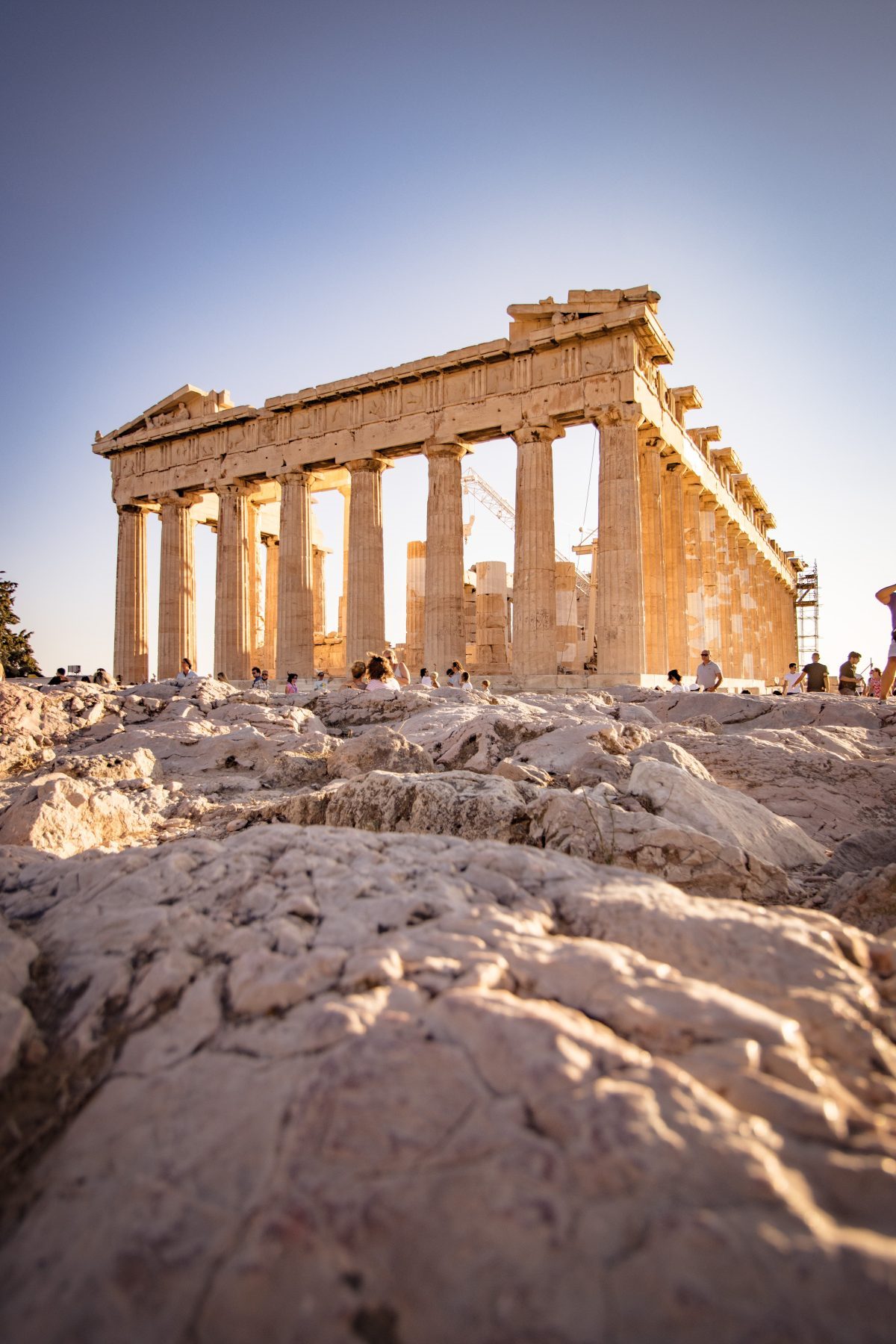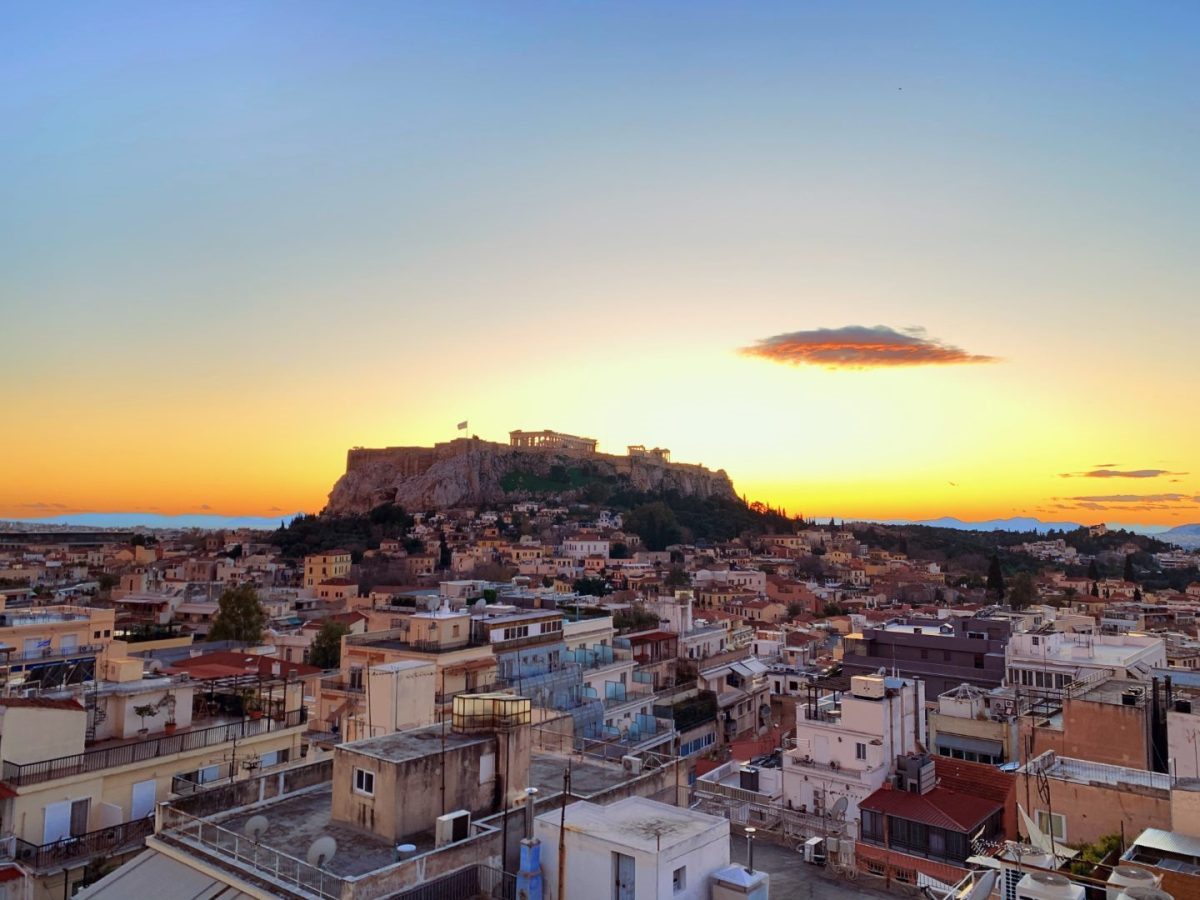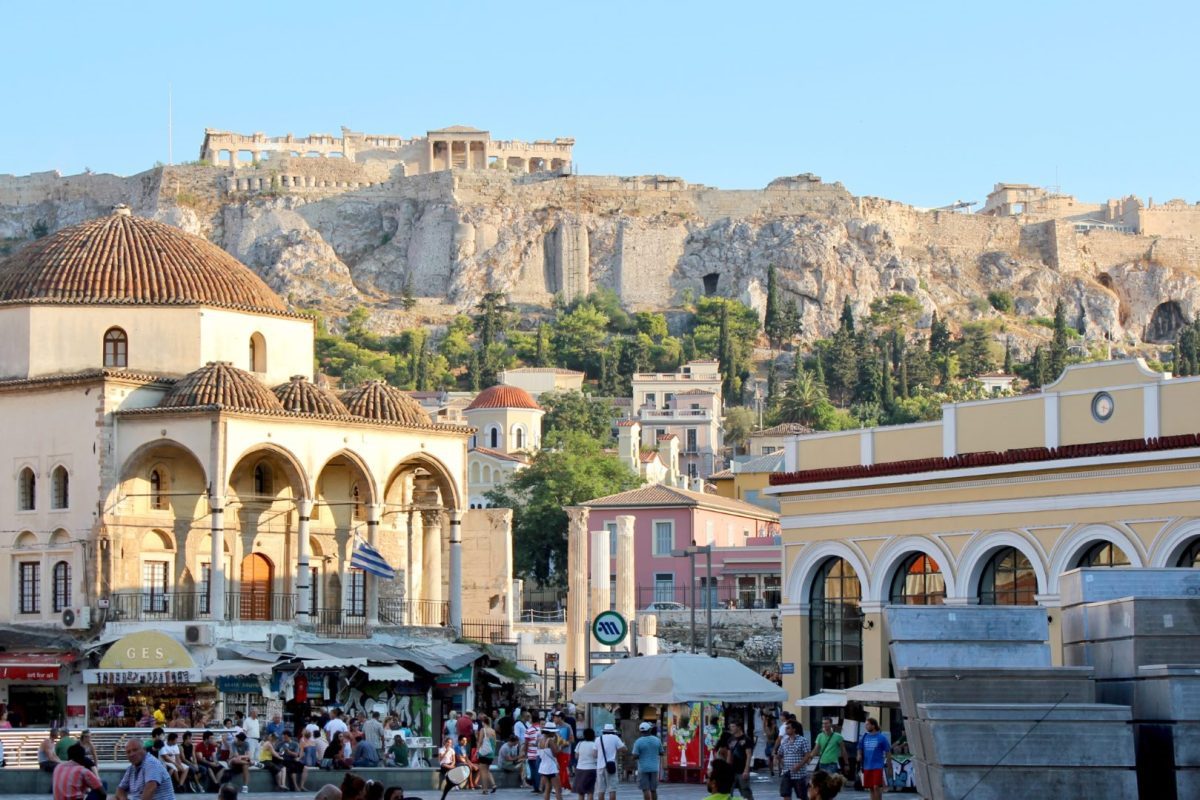How to Explore Athens Acropolis and 6 Archaeological Sites with Combo Ticket
If you are visiting Athens and interested in exploring the city’s rich history and archeological sites, then the Athens Acropolis and 6 Archaeological Sites Combo Ticket is an ideal choice for you. It will allow you to avoid the long lines of tourists and get straight into the top seven sites of Athens, including the Acropolis, Ancient Agora, Roman Agora, Temple of Zeus, Aristotle’s School, Hadrian’s Library, and Kerameikos Ancient Cemetery. This guide will provide you with all the information you need to make the most of your visit.Experience
This tour will provide you with an unparalleled experience of exploring Athens’ ancient ruins and archeological sites. You will learn about the rich history of Greece and its influence on the world, while marveling at the impressive architecture and craftsmanship of the ancient civilization.Highlights
The primary highlights of the Athens Acropolis and 6 Archaeological Sites Combo Ticket tour are:- Skip-the-line access to the top seven archeological sites of Athens
- Explore the famous Acropolis, Ancient Agora, Roman Agora, and other ancient sites at your own pace
- Marvel at breathtaking views of the city from the Acropolis Hill
- Save time and money with a pre-booked combo ticket that offers discounts of up to 50%
The Benefits of a Combo Ticket
One of the most significant benefits of the Athens Acropolis and 6 Archaeological Sites Combo Ticket is that it allows you to save time and money. The combo ticket enables you to explore all seven sites at your own pace and provides you with skip-the-line access to each of them. Additionally, you will receive discounts of up to 50% on the total cost of all seven tickets if you were to purchase them separately.What To Expect
When you arrive at each site, show your combo ticket at the entrance gate and bypass the long lines of tourists who are waiting to purchase their tickets. Then, explore the site at your leisure, take pictures and listen to audio guides (if provided). You will have enough time to immerse yourself in the fascinating history and culture of Athens.Details on the Sites
Here is some information on each of the seven sites included in the combo ticket:Acropolis
The Acropolis is one of the most famous ancient sites in Greece, standing atop a rocky hill with a 2500-year history. It was built in the 5th century BCE to honor the goddess Athena and features many impressive structures, such as the famous Parthenon, the Temple of Athena Nike, and the Erechtheion.Ancient Agora
The Ancient Agora was the political, commercial and cultural center of Athens and was founded in the 6th century BCE. Here, philosophers, politicians, and ordinary citizens used to gather in ancient times. You can see the remains of the Stoa of Attalos, a beautifully restored building that now serves as a museum.Roman Agora
The Roman Agora was built in the 1st century BCE and served as a commercial center in the Roman era. You can still see the remains of the Gate of Athena Archegetis and the Tower of the Winds, a beautifully preserved ancient clock tower.Temple of Zeus
The Temple of Zeus, also known as the Olympieion, is a colossal ancient temple dedicated to the god Zeus. It was built in the 6th century BCE and took over 700 years to complete. The temple’s enormous columns were the largest ever created in ancient times.Aristotle’s School
Aristotle’s School, also known as the Lyceum or Lykeion, was an ancient Greek philosophical school where Aristotle taught his pupils. Although there are no visible remains of the school today, you can visit the site and learn more about its rich history and its significance in ancient Greece.Hadrian’s Library
Hadrian’s Library was built in the 2nd century CE and was a vast complex of buildings that served as a library, gymnasium, and cultural center. The library housed over 100,000 volumes of books, and its ruins are a fascinating testament to the breadth of ancient knowledge and culture.Kerameikos Ancient Cemetery
The Kerameikos Ancient Cemetery is a unique ancient burial ground with intricate tombs and monuments dating back to the 7th century BCE. It is a fascinating insight into the lives and customs of ancient Greeks.Book Your Tour Now
In conclusion, the Athens Acropolis and 6 Archaeological Sites Combo Ticket is an excellent choice for anyone who is interested in exploring Athens’ rich history and ancient sites. It provides you with skip-the-line access to seven top archeological sites while saving you time and money. Book the tour here and be prepared for a truly unforgettable experience.
Frequently Asked Questions About Athens
Athens is a city steeped in rich history, culture and modern-day charm. It’s a destination that has something to offer everyone from history buffs to foodies to beach lovers. However, with so much to offer, Athens can sometimes be overwhelming for first-time visitors. In this FAQ guide, we’ve answered some of the most common questions people have about Athens.1. What is the best time to visit Athens?
The best time to visit Athens is between March and May or from September to November. During these months, the weather is mild and the crowds are thinner; you’ll have a better opportunity to enjoy the sights without feeling rushed or bogged down in tourist traffic. Keep in mind that Greece is a popular destination in the summer, so expect higher rates and larger crowds during this time.2. Is Athens safe?
Overall, Athens is a safe city for travelers. However, like with any large city, it’s important to take certain precautions to protect your belongings from pickpockets and to avoid walking alone at night in less populated areas. It’s always a good idea to stay in well-lit areas and to be aware of your surroundings, especially in crowded tourist areas.3. What are the top things to see in Athens?
Athens is packed with attractions and things to see. Some of the top attractions include: – Acropolis: This ancient citadel is the most famous attraction in Athens, and for good reason. It’s an impressive sight that will transport you back to ancient Greece. – The Parthenon: Located on the Acropolis, the Parthenon is an iconic temple that’s become a symbol for Athens and ancient Greece as a whole. – The Ancient Agora: Once the heart of the city in ancient times, this site is a showcase of the city’s history and heritage. – The National Archaeological Museum: With over 20,000 exhibits, this museum is a treasure trove of ancient Greek art and history. – Plaka: This neighbourhood is like stepping back in time. It’s a charming area filled with narrow streets, old buildings and plenty of cafes and restaurants.4. What is the dress code for visiting the historic sites?
While there isn’t a strict dress code for visiting the historic sites in Athens, it’s recommended to wear comfortable clothing and footwear. Keep in mind that you’ll be doing a lot of walking, so it’s important to dress appropriately for the weather and wear comfortable shoes. When visiting religious sites such as the Acropolis, it’s important to dress modestly, covering your shoulders and wearing trousers, skirts, or shorts that reach below the knee.5. What is the food like in Athens?
Greek cuisine is known for its delicious fresh produce, grilled meats, seafood and traditional dishes. Some of the must-try dishes in Athens include moussaka (a layered casserole made with eggplant, minced meat and béchamel sauce), souvlaki (grilled meat skewers), tzatziki (a yogurt-based dip), and feta cheese. There are plenty of restaurants and cafes in Athens catering to all tastes, from traditional Greek food to international cuisine.6. Is tipping expected in Athens restaurants?
Tipping isn’t mandatory in Athens, but it’s customary to leave a small tip if you’re happy with the service. A 10% tip is generally considered appropriate in most restaurants.7. How do I get around Athens?
Athens has a comprehensive public transport system comprising of the Metro, buses, trolleys and trams. The Metro is the most efficient way to get around, while buses and trams offer a slower but more scenic route. Taxis are also readily available, but they can be expensive during peak periods. If you prefer to explore the city at your own pace, renting a bicycle or scooter is also an option.8. What should I pack for my trip to Athens?
The type of clothing you pack will depend on the time of year you visit. Comfortable walking shoes are a must, as you’ll be doing a lot of walking. It’s also a good idea to pack a sunhat, sunscreen and light clothing for the summer months, while a light jacket and layers are recommended for the cooler months. Don’t forget to also bring a camera to document your trip and an adaptor for your electronic devices, as the voltage in Greece is 220V.Book Your Tour Now
Athens is a vibrant and exciting destination that boasts many attractions, much history, delicious cuisine and welcoming locals. Whether you’re visiting for the first time or returning to experience the city again, knowing what to expect and how to plan your trip can help ensure you have the best possible experience.
How to Spend Your Time as a Tourist in Athens
Athens, the capital city of Greece, is known for its rich cultural heritage, ancient ruins, mouth-watering cuisine, lively markets, and beautiful beaches. It is a city that has something for everyone, whether you are a history buff or a beach lover. In this guide, we will take a look at some of the activities that you can do to make the most out of your visit.Visit the Acropolis and Parthenon
The Acropolis is the most famous landmark in Athens and is a must-see attraction for all tourists. It is a hill that overlooks the city and is home to several ancient buildings, such as the Parthenon temple, the Propylaea gateway, the Erechtheion temple, and the Temple of Athena Nike. The Parthenon temple is the most famous of all and is a masterpiece of ancient Greek architecture.Explore the Ancient Agora
Ancient Agora was the marketplace and the center of civic life in ancient Athens. It was where the ancient Greeks would gather to buy and sell goods, discuss politics, and socialize. You can explore the various ruins in the area, including the Temple of Hephaestus, which is one of the best-preserved ancient temples in Greece.Visit the National Archaeological Museum
The National Archaeological Museum is the largest archaeological museum in Greece and has an extensive collection of ancient Greek artifacts. It houses artifacts from prehistoric times to the late Roman period and includes sculptures, jewelry, pottery, and more. If you are a history buff, this museum is a must-see.Take a Stroll in Plaka
Plaka is a historic neighborhood located just below the Acropolis. It is known for its narrow streets, charming cafes, and traditional Greek architecture. Take a stroll around Plaka, and you will come across various shops selling souvenirs, handicrafts, and Greek delicacies.Visit the Temple of Olympian Zeus
The Temple of Olympian Zeus is an ancient temple located southeast of the Acropolis. It was built in the 6th century BC and is one of the largest temples in Greece. Although only a few columns of this impressive structure remain standing today, it is still a magnificent sight to behold.Take a Day Trip to Cape Sounion
Cape Sounion is located about an hour south of Athens and is a popular day trip destination. It is home to the Temple of Poseidon, an ancient temple dedicated to the god of the sea. The temple is located on a hill overlooking the Aegean Sea and provides a breathtaking view of the coastline.Explore the Athens Central Market
The Athens Central Market is a bustling market located in the heart of the city. It is a great place to explore if you are looking to experience the local culture and cuisine. You can find everything from fresh seafood to spices and cheeses here, and there are also several cafes and restaurants in the area.Visit the Byzantine and Christian Museum
The Byzantine and Christian Museum is located in the Kolonaki neighborhood of Athens and is home to a vast collection of Byzantine and post-Byzantine art. The museum houses more than 25,000 artifacts, including mosaics, icons, and manuscripts. If you are interested in history and art, this museum is definitely worth a visit.Relax on the Beaches of the Athenian Riviera
The Athenian Riviera is a picturesque stretch of coastline that includes several beaches, such as Glyfada, Vouliagmeni, and Varkiza. These beaches are perfect for a day of relaxation or water sports. You can enjoy swimming, sunbathing, or trying out some of the many water sports on offer, such as windsurfing and paddleboarding. In conclusion, Athens is a city with an abundance of cultural, historical, and natural attractions. You can spend weeks exploring the city, and there will always be something new and exciting to discover. By following this guide, you will be able to make the most out of your visit to this beautiful city.Table of Contents

